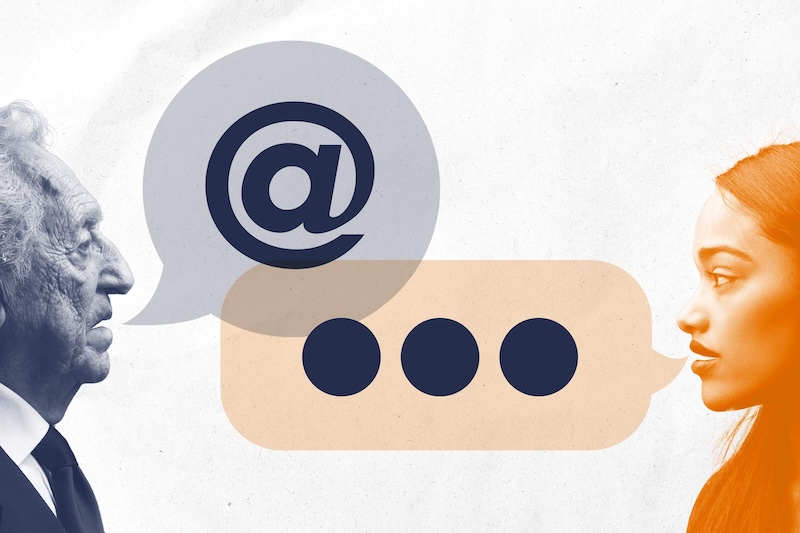
Bridging the Conversation Gap: Baby Boomers vs. Gen Z
Communication styles have evolved significantly over the decades, with each generation bringing its unique approach to conversation. Baby boomers, born between 1946 and 1964, grew up in an era dominated by face-to-face interactions, while Generation Z, born from the mid-1990s to early 2010s, has embraced the digital age with a preference for online communication. This article explores the distinctive conversation skills of these two generations and how they navigate the ever-changing landscape of communication.
Face-to-Face vs. Digital Interaction:Baby boomers are renowned for their strong emphasis on face-to-face communication. They value in-person interactions and often prefer traditional modes of conversation such as phone calls or in-person meetings.
In contrast, Gen Z has grown up in a digital world, where communication often occurs through text messages, social media platforms, and video calls. Their conversational skills are finely tuned for quick, concise digital exchanges.
Market leading teams will identify how their customers prefer to communicate and train both Boomers and Gen Z to serve their customers the way they chose to buy.
Listening and Empathy:
Baby boomers are known for their attentive listening skills, homed in an era where communication was often slower and more deliberate. They value deep, meaningful conversations that allow for genuine connections.
Gen Z, while adept at navigating digital conversations, may sometimes face challenges in sustaining prolonged face-to-face discussions. However, their ability to quickly process and respond to information contributes to efficient exchanges.
We must ensure our teams have active listening skills where we listen to learn and not just reply.
Formality and Informality
Baby boomers tend to prefer formal language and structured conversations. Politeness and respect for hierarchy are often evident in their communication style.
Gen Z, on the other hand, tends to adopt a more casual and informal tone. Their conversations often include memes, emojis, and abbreviations, reflecting the influence of digital culture on their language.
Again, we will understand our customers a strategically communicate in the way that best serves them.
Adaptability to Technology:
Baby boomers, having witnessed the advent of technology, may exhibit varying degrees of comfort with digital tools. Some are tech-savvy, while others may find it challenging to keep up with the rapid advancements.
Gen Z is inherently tech-native, effortlessly navigating a multitude of digital platforms. Their conversational skills include the ability to express themselves creatively through various online mediums.
We find Gen Z salespeople are particularly strong in business development and inside sales nurturing and growing relationships digitally.
Multitasking and Attention Span:
Baby boomers generally value focused, one-on-one conversations, and may find multitasking during discussions impolite. Their attention span is often geared towards deep, concentrated dialogue.
Gen Z, accustomed to the constant influx of information in the digital age, has developed the ability to multitask effectively. However, this can sometimes lead to shorter attention spans in face-to-face conversations.
Next Steps
While baby boomers and Gen Z may differ in their conversation skills due to the unique contexts in which they grew up, there is a potential for a rich exchange of knowledge and experiences between the two generations. Bridging the conversation gap involves understanding and appreciating each other’s communication styles, creating a harmonious blend of traditional and digital interaction.
To be a top performing salesperson as a Boomer of Gen Z it is critical to know how our customers desire to be served. We have the burden of adapting to how they want and need to be served. This often requires training and coaching.
Have your salespeople received training and coaching on how to have conversations with different generations than their own?
Let’s schedule a call if you would like to discuss this skill in adapting your conversation tone and modality based on the person you are speaking with.

